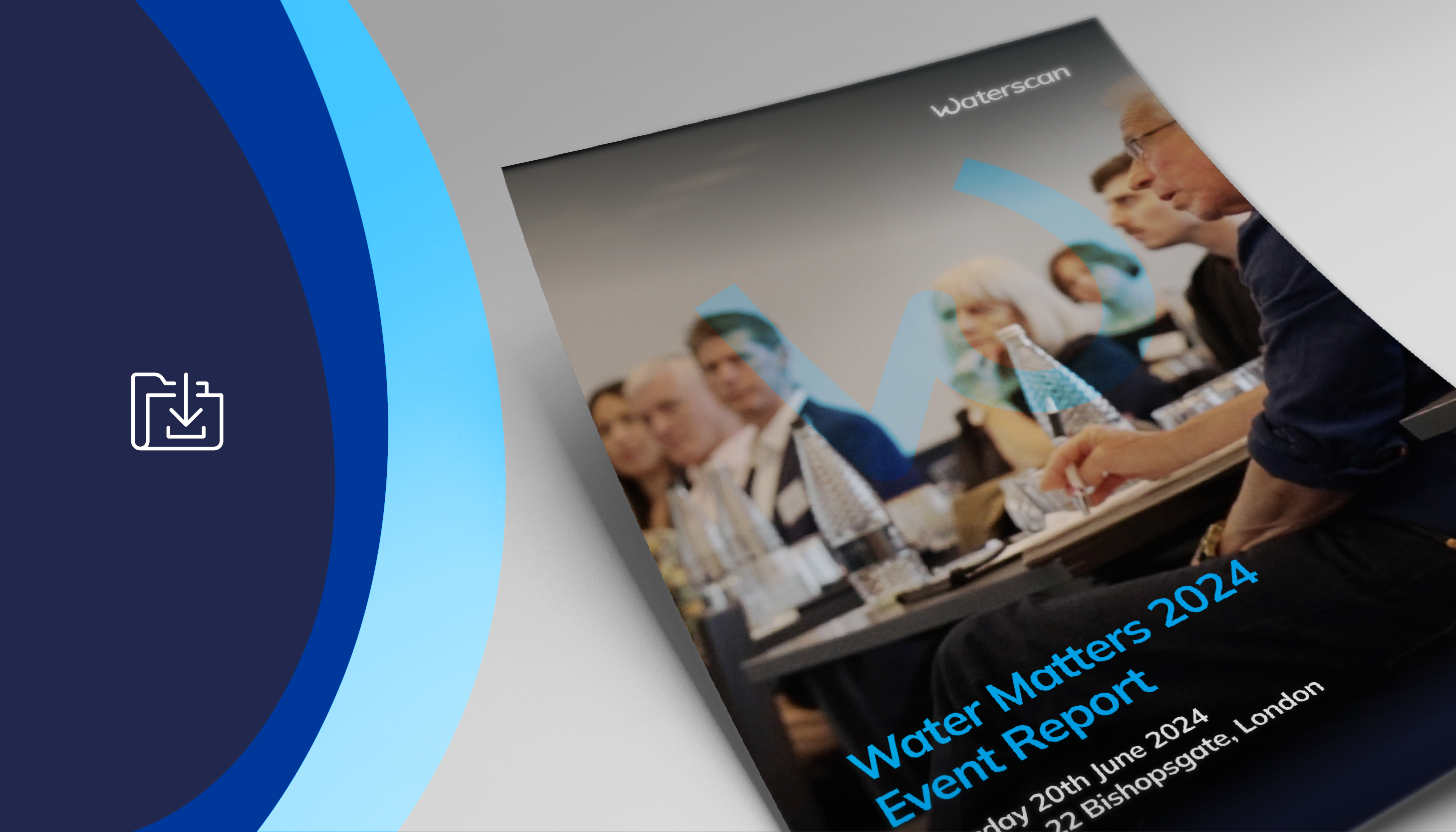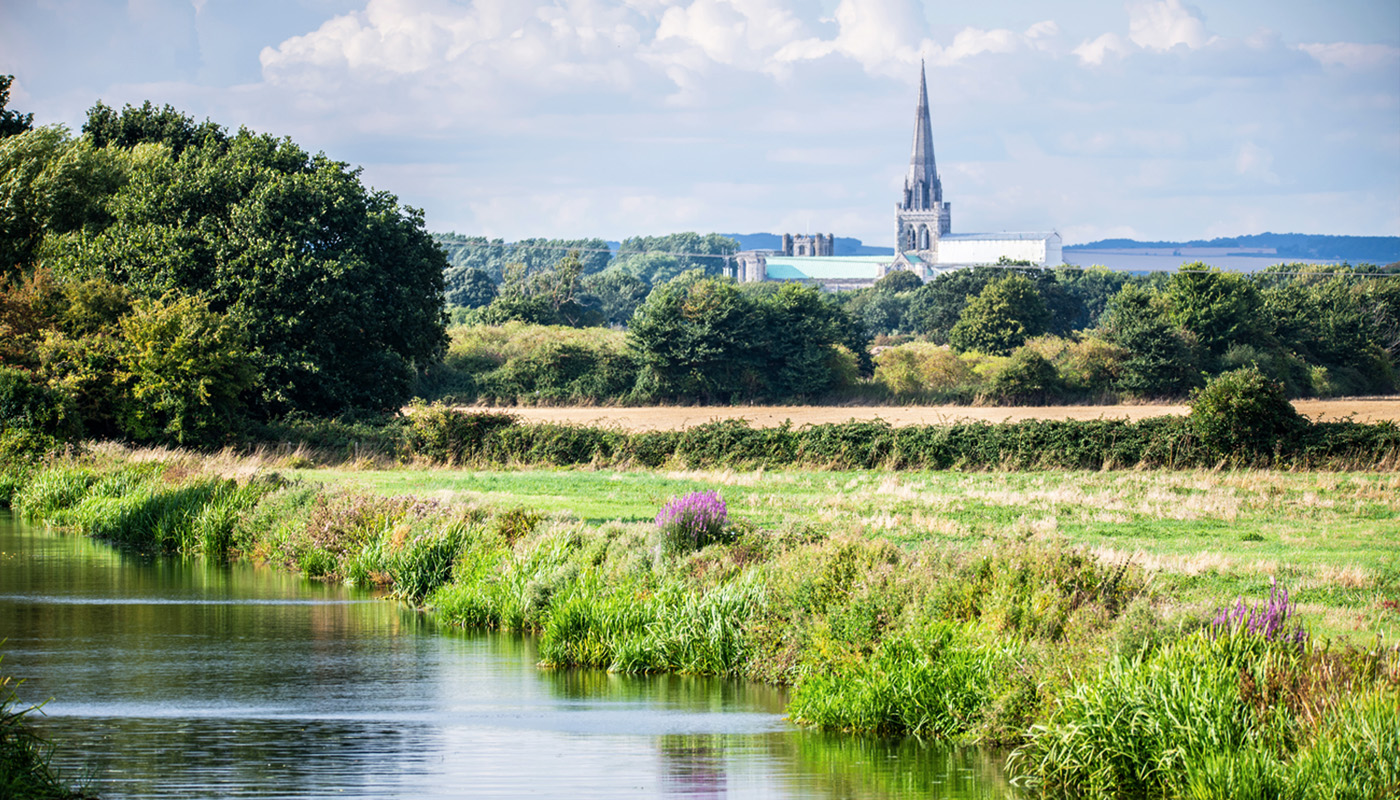“If you want to make progress on global challenges, start with water”, advises the World Economic Forum.
‘Hang on!’, we hear you cry. ‘We were finally getting somewhere with regard to our plastics and net zero targets and now you want us to wade into the murky depths of our water footprint too? One thing at a time, surely?’
Well, no, actually, and I’m afraid it’s getting rather urgent if water isn’t already firmly flowing through your sustainability agenda. And here’s why.
Less than 1.2% of all water on earth is available for human use. Yet, the availability of water underpins the success or failure of every other environmental and social challenge that we face on the planet. Indeed, all of the 17 Sustainable Development Goals (SDGs) are dependent, in one way or another, on clean water. So, doesn’t it make sense to start with water and benefit from its ability to unlock progress on multiple other fronts?
Making sense is one thing. Taking action is quite another, it seems.
Water features in very few corporate risk registers or business continuity plans. This is especially true in the UK where our notoriously wet weather and island geography combine to give the impression that usable water is plentiful here. It may come as some surprise then, to learn that London was the only place in Europe to feature on a UN list of water-deprived cities globally. Joining the likes of Cairo and Cape Town, Bangalore and Beijing, Mexico City and Miami, our capital was deemed to be the 9th city mostly likely to run out of drinking water.
So, what needs to be done? As with most business functions, if you can’t measure it, you can’t manage it. And here, with data and disclosure, is the best place to start.
Thousands of organisations are well used to disclosing on carbon, working with the Carbon Disclosure Project (CDP) or other schemes to demonstrate their commitment to transparency and accountability, but many have yet to extend their reporting to water. This is probably because water reporting is very different to carbon reporting. While the process is the same, there are more variables, including location, time of year and population dynamics to consider when analysing impacts and risks.
A tonne of carbon has the same impact no matter where on the planet it is emitted, but the consequences of consuming a cubic metre of water can vary dramatically. Consider, for example, water consumption in a location where reservoirs are full and at a time when demand is low versus the same consumption in a water scarce area in the middle of a drought.
Water disclosure is specialised, and it requires a unique data set, but don’t let that stop you.
Get ready for a second surprise. While you may not have it at your fingertips, there is an enormous amount of water data available. If you want to know how much water you’re using, where, and how, and create site-level benchmarks, this is more easily achieved than you may think. If you want to work water into realistic strategic and holistic sustainability targets and action plans, you can do that too. If you want to stand out from the crowd and take a leadership position on water, it’s yours for the taking via CDP, with whom we partner as the UK’s water expert.
Several Waterscan customers, including Coca-Cola European Partners, Morrison’s, Sainsbury’s and Whitbread, already disclose on water and we applaud them for diving in head-first. These companies are now effectively identifying strengths and weaknesses, enhancing their reputation and influence, reducing risk and building operational resilience.
The business case for acting on water has never been clearer. Find out why and how to get water resilience onto your Board’s agenda.
When will you join them?




